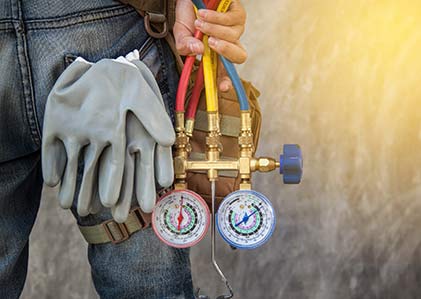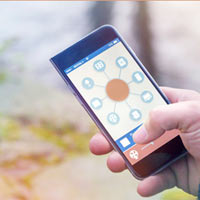Learn about Trends with National Smart Home Month
To highlight the new trends in smart home technology and educate people about how to use it, Real Homes and their sister brand Homebuilding & Renovating have joined forces with technology brands TechRadar and T3 to produce National Smart Home Month. For the month of October, Real Homes will produce outstanding videos, newsletters, explainers, buying guides, and news pieces aimed at bringing people up to speed on smart home technology.
According to a survey completed by Real Homes, 70 percent of respondents didn’t know the capabilities of smart assistants, 39 percent didn’t know what a smart home was, and 31 percent didn’t know how to connect devices together. To help bring readers up to speed, Real Homes and their partner brands are offering:
- A beginners’ guide titled “Smarter Living” free of confusing jargon, to help anyone turn their home into a smart home
- Seminars on the London Homebuilding & Renovating Show, including “Making the Most of the Latest Smart Home Technologies in Your Home” and “The Smart Home Done Right”
- A “Focus On: Smart Appliances” article to help break down the best high tech kitchen tools
All content will be conveniently labeled with the National Smart Home Month logo to help users easily locate the pertinent articles. For now, we profile four smart innovations below that can be put to use in your home in 2021 and beyond.
iRobot Roomba i3 Wi-Fi Connected Robot Vacuum
The iconic Jetsons cartoon comes to life with the iRobot Roomba i3 Wi-Fi Connected Robot Vacuum. While this device doesn’t interact directly with home HVAC systems, vacuums such as the iRobot Roomba models are very efficient at removing dust and pet dander from floors. Cleaner floors mean cleaner air and keep HVAC air filtration systems working efficiently, and saving homeowners from costly maintenance repairs. This voice-activated vacuum can be scheduled or controlled by the iRobot home app or a smart speaker such as Amazon Alexa.
This vacuum works well on hardwood floors and carpets and learns from your cleaning habits. It will suggest extra cleanings during allergy season or pet-shedding season. Smart sensors prevent it from falling down stairs. Optional integrated mop and dirt disposal stations are available to fully automate the chore of floor cleaning. iRobot has several models to choose from, and this one costs $399.99 on Amazon.
UV LED Light Bulbs for HVAC Systems
Cutting-edge research from Tel Aviv University (TAU) has good news: coronavirus can be killed quickly and efficiently using ultraviolet (UV) light-emitting diodes (LEDs) in HVAC systems. While this technology is not currently in production, it’s estimated to be available soon for residential and commercial use.
UV LED light bulbs work to eliminate the threat of coronavirus by being installed in ventilation systems such as air conditioners and heat pumps. Air that passes over ultraviolet lights is sterilized when it’s drawn in and recirculated throughout a home or a building.
Since the cost of LED bulbs is low and the UV light is not exposed to humans, this solution is affordable, safe, and has the potential to be an effective way to clean the air and prevent contagious airborne viruses like Covid-19 from spreading.
Yoolax Smart Blinds
An easy way to control the temperature in a house is with window coverings. Yoolax makes Smart Blinds that can make putting the shades up or down to cool or warm a home as easy as pushing a button. These blinds are made out of durable PVC and vinyl and are equipped with a remote-enabled motor. The blinds can be controlled via remote or can be connected to Google Home or Alexa for voice control. All of the blinds are completely customizable for length, width, and color so that they will fit any window.
The motors on the blinds run off of a battery that needs to be charged every three to six months. For hard to reach blinds or for users looking for more convenience, there is an optional solar panel that can be purchased to keep the blinds charged at all times.
Proscenic Smart Humidifiers
For people who live in dry climates or have allergies or other breathing issues, Prosenic makes a smart humidifier that can help regulate air humidity. This smart appliance can be controlled from the app or through voice control integration with Alexa.
Depending on the size purchased, these humidifiers can run up to 30 hours without needing to be refilled. There is even an aromatherapy function that utilizes essential oils to freshen the air or help ease respiratory illnesses.
What really makes this humidifier stand out is the ability to schedule it. With the app, users can select the time, mode, and level of humidification. The humidifier will automatically shut off if the water level is too low but will otherwise run as programmed.



